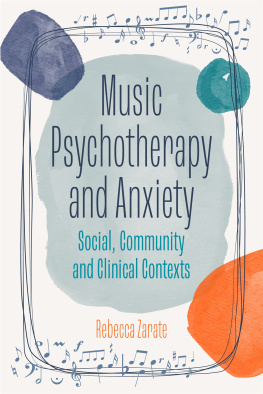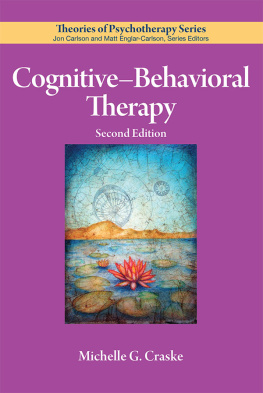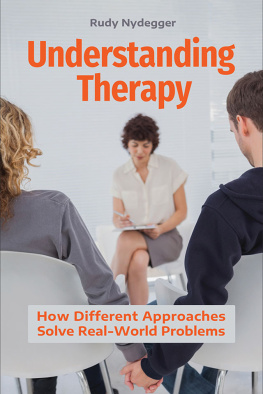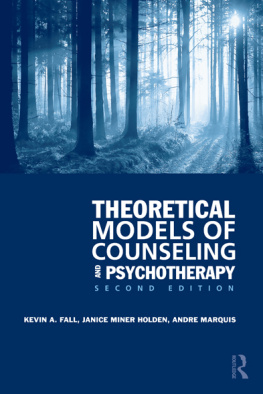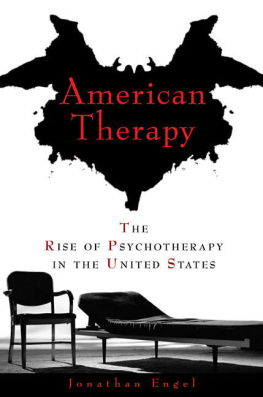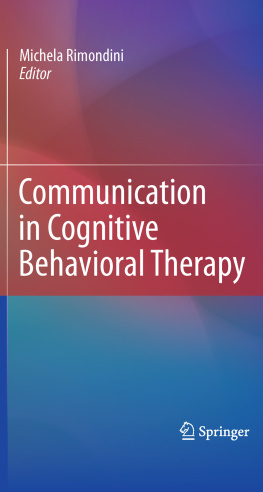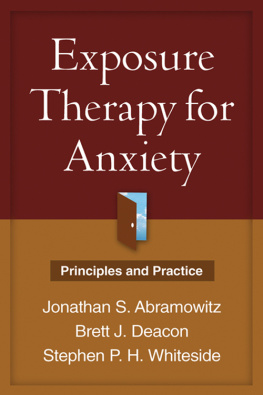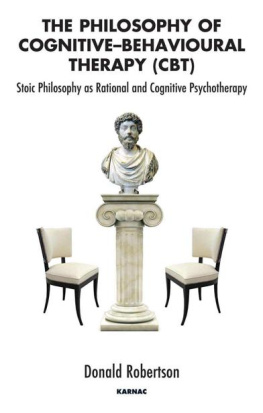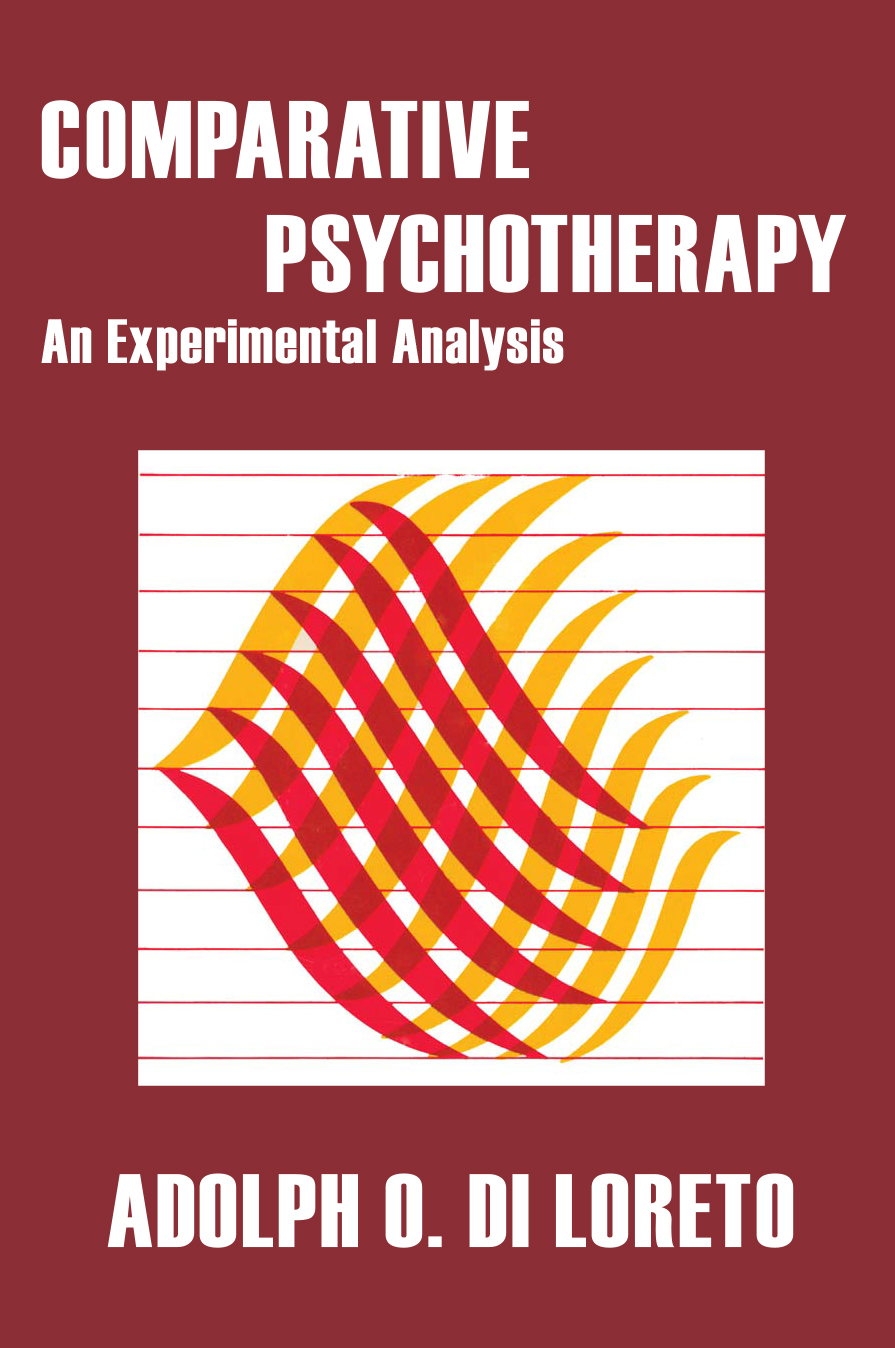Contents
COMPARATIVE
PSYCHOTHERAPY
COMPARATIVE
PSYCHOTHERAPY
An Experimental Analysis
ADOLPH O. DI LORETO
With critiques by Albert Ellis,
Alan Goldstein and Joseph Wolpe,
and Angelo V. Boy

First published 1971 by Transaction Publishers
Published 2017 by Routledge
2 Park Square, Milton Park, Abingdon, Oxon OX14 4RN
711 Third Avenue, New York, NY 10017, USA
Routledge is an imprint of the Taylor & Francis Group, an informa business
Copyright 1971 by Taylor & Francis.
All rights reserved. No part of this book may be reprinted or reproduced or utilised in any form or by any electronic, mechanical, or other means, now known or hereafter invented, including photocopying and recording, or in any information storage or retrieval system, without permission in writing from the publishers.
Notice:
Product or corporate names may be trademarks or registered trademarks, and are used only for identification and explanation without intent to infringe.
Library of Congress Catalog Number: 2006045660
Library of Congress Cataloging-in-Publication Data
Di Loreto, Adolph O., 1941
Comparative psychotherapy : an experimental analysis / Adolph O. Di Loreto ; with critiques by Albert Ellis...[et al.].
p. cm.(Modern applications of psychology)
Includes bibliographical references.
ISBN 0-202-30852-9 (pbk. : alk. paper)
1. PsychotherapyEvaluation. I. Title.
RC480D48 2006
616.8914dc22
2006045660
ISBN 13: 978-0-202-30852-4 (pbk)
Contents
to my wife Margaret
In the past decade, counseling and psychotherapy have undergone drastic and significant changes; at the same time, however, the evaluation of these processes has remained psychologys main practical and theoretical problem. In this book, a number of contingencies, such as the process-outcome dichotomy, the criterion problem, and client and therapist variables are examined, and a unified, multivariate-comparative model is proposed in an attempt to incorporate and/or circumvent these real and imagined enigmas.
I believe that, although schools of counseling and psychotherapy were the inevitable consequence of theories based on tenacity, faith, and intuition, they have continued to exist largely because the bulk of contemporary research is of a process and treatment no-treatment nature, and thus addresses itself to meaningless questions. These approaches not only yield very little useful informationthey also tend to maintain and perpetuate school distinctions by allowing therapists to transfer their loyalties and affections from a set of highly esoteric rituals to a highly selective body of empirical findings without ever once taking a closer look at their underlying personal convictions or whether these commitments are justified in terms of either the available evidence or the competing approaches. It is this pseudo-scientific base that makes these schools currently so implacable and unyielding.
In order to overcome this predicament, research in counseling and psychotherapy must move in two directions. First, we must move from research that emphasizes process to research that emphasizes outcome, but includes relevant process measures of client-therapist interactions as well as measures of sequential change in the target behaviors under study, so as to aid in our understanding of why we got the results we did. Second, movement must occur from outcome studies that emphasize the use of a treatment no-treatment model to studies that emphasize research based on a multivariate-com-parative model.
With the inclusion of both process and outcome measures, in conjunction with assessment on relevant input variables, we can begin to ask the more appropriate question: What form of treatment, administered by whom, is most effective for this particular client with that specific problem, and under what set of circumstances? Not until we begin to employ research designs that address themselves to this question will we be able to circumscribe the limits of applicability of various techniques and demonstrate their efficacy in these delimited contextsor, put another way, rid ourselves of the myths of which Kiesler (1966) speaks.
A review of the published literature reveals no studies dealing directly with the relationship between relative treatment outcome and personality type in clients with a specific, homogeneous problem. Consequently, the case studies and research presented in the first two chapters of this volume, which deal independently with these variables, served as the basis for the research hypotheses that were developed and tested in this study. These hypotheses are:
With regard to the extroverts, the order of effectiveness of these three techniques in reducing interpersonal anxiety will be (from most to least effective) : Client-Centered, Rational-Emotive, and Systematic Desensitization treatment.
With regard to the extroverts, the order of effectiveness of these three techniques in reducing general anxiety will be (from most to least effective) : Client-Centered, Rational-Emotive, and Systematic Desensitization treatment.
With regard to the introverts, the order of effectiveness of these three techniques in reducing interpersonal anxiety will be (from most to least effective) : Systematic Desensitization, Rational-Emotive, and Client-Centered treatment.
With regard to the introverts, the order of effectiveness of these three techniques in reducing general anxiety will be (from most to least effective) : Systematic Desensitization, Rational-Emotive, and Client-Centered treatment.
Each of the treatment conditions will produce significantly greater reduction in interpersonal anxiety than either of the control conditions.
Each of the treatment conditions will produce a significantly greater reduction in general anxiety than either of the control conditions.
The no-treatment (placebo) control condition will produce a significantly greater reduction in interpersonal anxiety than the no-contact control condition.
The no-treatment (placebo) control condition will produce a significantly greater reduction in general anxiety than the no-contact control condition.
The results of the present study confirmed hypotheses five through eight. All treated Ss had a lower post-test and follow-up anxiety level than any of the control Ss. In addition, the no-treatment (placebo) controls had a lower post-test and follow-up level of anxiety than the no-contact controls. However, the placebo benefits were limited almost exclusively to introverts. Hypotheses one through four were only partially supported. While both the CC and RT treatments exhibited significant introvert-extrovert differences in the predicted direction, the SD treatment was equally as effective with both introverts and extroverts. It was hypothesized that the former results were due to the differential effects of the RT and CC approaches in eliciting self-exploration in introverts and extroverts, respectively. The latter findings were attributed to the differential effects of group SD with introverts.
So many people were involved, directly and indirectly, in the successful completion of this research project that it is almost impossible to mention them all individually. To those many university officials, secretaries, and other staff members, I wish to express my deepest appreciation for their time and the use of their buildings, offices, and equipment.


